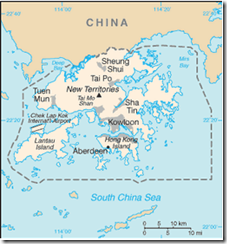
#16,679
As mentioned last Saturday, today Hong Kong begins three days of at-home testing after attempts to conduct a more stringent mandatory city-wide testing program were put on hold last month.
Although Hong Kong is now reporting only a fraction of the number of COVID cases that they were in early March, yesterday they reported nearly 2,500 cases.
Meanwhile, COVID in Mainland China continues to surge.
While China's NHC only reported a deceptively low 1,576 new confirmed cases yesterday, they also acknowledge another 22,648 `asymptomatic infections'; mostly from the locked down city of Shanghai. With well over 90% of all COVID cases on the Mainland classified as `asymptomatic', one has to seriously question their definition of the term.
We've two reports today from Hong Kong. First, this report on the 3-days of testing set to commence today. Those who test positive are required to report their status ". . . so that they can receive appropriate isolation and treatment."
Rapid national testing helps the government to grasp the situation of community infection
April 8, 2022
The government launched a daily operation of rapid antigen testing for three consecutive days today. Chief Executive Carrie Lam Cheng Yuet-ngor appealed to all Hong Kong citizens to respond, so that the government could better grasp the current infection situation in the community so as to plan the next stage of work.
Carrie Lam said at a press conference today that the rapid testing will help identify infected people in the community as soon as possible, so that they can receive appropriate isolation and treatment, or receive home isolation support to cut off the chain of transmission.
In order to make the rapid test operation more effective, the authorities earlier mobilized government personnel and volunteers to distribute epidemic prevention service kits, which contain 20 rapid antigen test kits. Lin Zhengyue said that as of last night, 3.05 million epidemic prevention kits have been distributed to 2.7 million households. If the households belong to a family of four to six people, they will receive one or two more packages.
She pointed out that the material supply is fully in place, and 89 distribution stations in Hong Kong started operation yesterday, distributing more than 50,000 anti-epidemic service kits and 110,000 rapid antigen test kits. If citizens run out of the rapid antigen test kits in the epidemic prevention service package, they can go to the distribution station to collect them.
Carrie Lam believes that the public is eager to launch a roadmap on the 21st of this month to lift social distancing measures in three phases within three months, so that society can return to normal. She believes that the sooner Hong Kong reaches zero at the social level and cuts off all chains of transmission, the better it will be for citizens to realize their expectations. Therefore, she appealed to the public to participate in the rapid test operation.
The HK Government is also encouraging all those over the age of 60 - who are at least 90 days since their 1st booster - get a 2nd booster shot.
April 8, 2022
In the fifth wave of the new crown epidemic, people aged 60 or older accounted for more than 95% of the deaths. Food and Health Secretary Chen Zhaoshi said that for people aged 60 or above who have received three doses of the new crown vaccine, experts recommend that they receive a fourth dose at least three months after the last dose of the vaccine to enhance protection.
Chen Zhaoshi pointed out at a press conference today that out of every ten people who died from the new coronavirus disease in Hong Kong recently, about nine people did not receive or only received one dose of the vaccine. In the fifth wave of the epidemic, most of the deceased were people aged 60 or above, accounting for more than 95% of the deaths.
Experts suggest that the same principles for people aged 60 or older who have received the third dose of the vaccine to receive the fourth dose also apply to those who have recovered from new coronary pneumonia aged 60 or older.
In terms of vaccination for recovered patients, experts do not object to individual individuals receiving the next dose of the vaccine no less than 28 days after recovery. Recovered persons who have not been vaccinated in the past can be vaccinated one month after recovery.
As for people who are not sure whether they have been infected earlier, experts believe that they can also be vaccinated against the new crown, and do not need to undergo virus screening before vaccination.
Chen Zhaoshi said that the vaccination of the elderly in Hong Kong has gradually increased, but among people aged 60 or above, it is estimated that nearly 370,000 people have not received any vaccinations.
She reiterated that vaccination is especially important for the elderly, even if the first dose is already protective against the virus, and timely vaccination of the remaining doses can greatly reduce the risk of severe illness or death after infection.